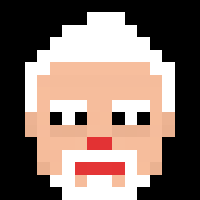I don’t believe free will is real. I’m not a deep physics person (and relatively bad at math), but with my undergrad understanding of chemistry, classical mechanics, and electromagnetism, it seems most rational that we are creatures entirely controlled by our environments and what we ingest and inhale.
I’m not deeply familiar with chaos theory, but at a high level understand it to be that there’s just too many variables for us to model, with current technology, today. To me that screams “god of the gaps” fallacy and implies that eventually we WILL have sufficiently powerful systems to accurately model at that scale…and there goes chaos theory.
So I’m asking you guys, fellow Lemmings, what are some arguments to causality / hard determinism, that are rooted entirely in physics and mechanics, that would give any credit to the idea that free will is real?
Please leave philosophical and religious arguments at the door.


We know cause and effect exist in the universe. We can use this to gain control of a lot of things in our world: for instance, when I push the letter “A” on my touchscreen, the letter “A” appears on my screen due to these cause/effect systems we have set up.
However, we know that the universe is not entirely describable via cause and effect. Heisenberg’s Uncertainty Principle precludes us from fully observing all aspects of a quantum system, Gödel’s Incompleteness Theorem shows that our knowledge of the universe will always be incomplete, and Schrödinger’s Cat shows us the absurdity of trying to make concrete claims about observed phenomena using probabilistic models.
If the universe was purely deterministic and we were theoretically able to gain all knowledge of it, there would not be free will. But this is not the universe we live in. The universe we live in is one where:
If events in the universe were fully deterministic, then free will would be an illusion, because everything could be traced to an earlier set of causes, and decisions would not actually exist. If events in the universe were random, free will would have no meaning, because decisions would be arbitrary.
But we live in a universe where things are not immutable, but things are not equally likely. I can roll a fair set of dice for randomness, or I can weight them to create an uneven probability, or I can select a number to eliminate probability altogether. And we all make decisions with limited observations using incomplete knowledge that will only have a partial effect to affect the probabilities of future events. And that means we shape events without controlling them, so all of our decisions have meaning. We can also tell objectively based on observations that some decisions are better than others, while at the same time conceding that no decision is 100% objectively right or wrong.
And that, my friend, is free will.